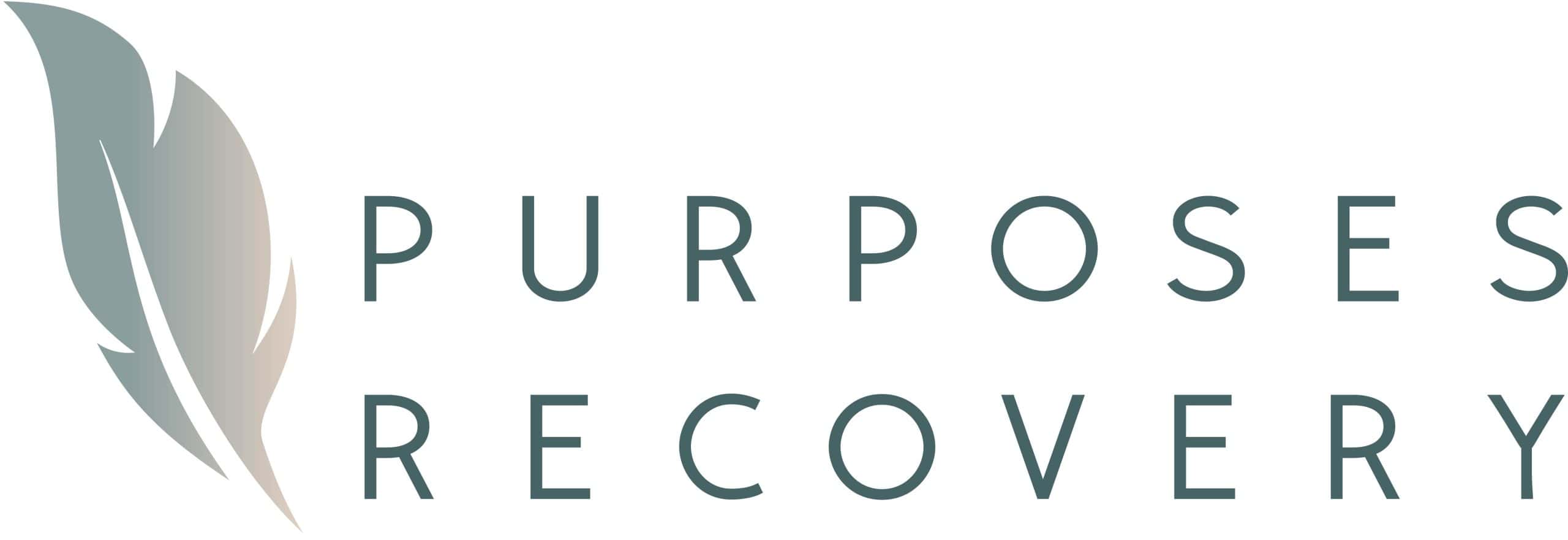
Understanding Heroin Addiction
Heroin addiction and the opioid epidemic remain a pressing and complex public health issue, impacting individuals and communities across the globe.
Heroin addiction is a chronic, relapsing disorder characterized by the compulsive seeking and use of heroin despite the harmful consequences. This addiction stems from changes in brain function and structure and is considered a chronic disease. Heroin, an opioid derived from morphine, significantly alters the brain’s reward system by flooding it with dopamine, which produces intense euphoria and creates a powerful psychological and physiological craving for the substance, often leading people to seek help from a heroin rehab in Los Angeles.
Causes of Heroin Addiction
Several factors contribute to heroin addiction, including genetic predisposition, environmental influences, mental health conditions, and social factors.
Genetics can play a significant role, as individuals with a family history of addiction may be more susceptible. Environmental factors such as exposure to drug use, trauma, and socio-economic conditions also influence the likelihood of a substance abuse disorder. Additionally, mental health disorders like depression and anxiety can drive individuals toward heroin as a form of self-medication.
Heroin Withdrawal Symptoms
Understanding the heroin withdrawal symptoms associated with heroin addiction is crucial for both medical professionals and individuals seeking addiction recovery.
- Physical Symptoms: These include physical health issues, like muscle and bone pain, insomnia, diarrhea, vomiting, cold flashes with goosebumps, and uncontrollable leg movements.
- Psychological Symptoms: Psychological symptoms include anxiety, restlessness, and severe cravings for heroin, often resulting in relapse.
- Duration and Severity: Withdrawal symptoms can begin within a few hours after the last dose and peak between 24-48 hours. They typically subside after about a week, although some symptoms can persist for months.
Effective management of the withdrawal process in a heroin rehab in Los Angeles is essential in addiction medicine and requires medical supervision to ensure safety and efficacy. Withdrawal management programs like a heroin detox help ease withdrawal symptoms from drug dependence and facilitate the path to recovery, supporting individuals in their journey to overcome addiction.
Heroin and Drug Addiction Overdose Symptoms
Recognizing the symptoms of a heroin overdose can be life-saving. Both medical professionals and the general public must be aware of these indicators so they can act promptly.
- Shallow or difficult breathing
- Extreme drowsiness or unresponsiveness
- Blue or pale skin, lips, and fingernails
- Slow or irregular pulse
- Disorientation or delirium
- Constricted pupils
Immediate emergency medical help is crucial in the event of a suspected heroin overdose. Administering naloxone, an opioid antagonist, can reverse the overdose effects if done promptly.
REQUEST A CALL FROM OUR TREATMENT CENTER IN LOS ANGELES CA
Recovery Starts at Our Drug Rehab in Los Angeles CA
"*" indicates required fields
How our Inpatient Drug Rehab Center for Heroin Addiction Works
Treating heroin addiction requires a multifaceted approach, combining medical intervention with psychological support to address the diverse needs of individuals. Each component of the residential treatment plan is designed to ensure a comprehensive recovery process, mitigating the risk of relapse and fostering long-term sobriety. Here’s what we offer at our treatment facility:
Comprehensive Assessments for Drug or Alcohol Addiction
The first step in treating heroin addiction is conducting a thorough and individualized assessment. This evaluation involves medical, psychological, and social components to understand the extent of the addiction and identify any co-occurring disorders, such as mental health issues or other substance use problems. Medical assessments will include physical examinations and laboratory tests to gauge the individual’s overall health and detect any substance-related damage.
Medical Detox for Drug and Alcohol Addiction
Medical detoxification, or detox, is a critical initial phase in the treatment of heroin addiction that takes place before outpatient treatment or residential addiction treatment. This medically supervised process involves the gradual withdrawal from heroin under the care of healthcare professionals, aimed at managing and alleviating the acute physical symptoms of withdrawal.
Withdrawal symptoms can be severe and may include nausea, muscle pain, anxiety, and intense cravings for heroin. Medical heroin detox ensures that individuals withdraw safely and as comfortably as possible, reducing the risk of complications associated with abrupt cessation.
Medication Management at our Substance Abuse Treatment Center in Los Angeles
Medication-assisted treatment (MAT) is a crucial component of heroin addiction treatment, designed to support recovery and race as relapse prevention. This ongoing process involves the strategic use of medications that can mitigate withdrawal symptoms, lessen cravings, and normalize brain function. Common medications used in this phase include methadone, buprenorphine, and naltrexone.
Methadone and buprenorphine work by binding to the same opioid receptors in the brain that heroin targets, yet they do so without providing the euphoric high, thus aiding in the maintenance of sobriety. Naltrexone, on the other hand, acts as an opioid antagonist by blocking these receptors, preventing the effects of heroin if used.
Dual Diagnosis Treatment at our Drug Rehab in Los Angeles, CA
Dual diagnosis refers to the condition of experiencing both a mental health disorder and a substance use disorder simultaneously. This co-occurrence is not uncommon; in fact, many individuals struggling with addiction also suffer from mental health issues such as depression, anxiety, bipolar disorder, or post-traumatic stress disorder (PTSD). Recognizing and treating both conditions by providing addiction and mental health services is crucial because they can interact in ways that exacerbate each other, making recovery more complex.
Individual Therapy at our Heroin Rehab Los Angeles
Individual therapy plays a pivotal role in heroin addiction treatment. This personalized approach based on an individualized treatment plan allows therapists to work one-on-one with patients, addressing specific triggers, behaviors, and underlying issues that contribute to addiction. Through various therapeutic techniques, individuals can gain insights into their addiction, develop coping mechanisms, focus on stress management, and work towards long-term sobriety.
Group Therapy at our Drug and Alcohol Rehab in Los Angeles, CA
Group therapy offers heroin addicts support groups and an understanding environment where they can share experiences and challenges with others facing similar struggles. This collective form of therapy fosters a sense of community, reduces feelings of isolation, and provides a platform for peer support and accountability. Participants often benefit from the shared wisdom and encouragement of the group, which can significantly bolster their recovery journey.
Acceptance and Commitment Therapy
Acceptance and commitment therapy (ACT) helps individuals with heroin addiction by teaching them to accept their thoughts and feelings rather than fighting or feeling guilty about them. This therapy emphasizes embracing change and committing to actions that align with personal values, aiding in the development of a more balanced and fulfilling life free from addiction.
Behavioral Therapy
Behavioral therapy focuses on changing the harmful behaviors associated with heroin use. By identifying and modifying destructive patterns, patients can learn healthier ways to cope with stress, cravings, and other triggers. Techniques such as contingency management and behavior modification are frequently utilized to reinforce positive changes and discourage drug use.
Case Management
Case management is essential in coordinating comprehensive care for individuals with heroin addiction. Case managers assess the needs of each patient, connect them with necessary resources, and ensure that all aspects of the individualized treatment plans are being addressed. This can include medical care, housing, education, and employment support, all of which are critical for achieving and maintaining sobriety.
Cognitive Behavioral Therapy (CBT)
CBT is highly effective in treating heroin addiction by helping patients recognize and alter negative thinking patterns that fuel their addiction. Through CBT, individuals learn to challenge and replace these thoughts with more constructive ones, reducing the likelihood of relapse and promoting healthier decision-making.
Dialectical Behavior Therapy (DBT)
DBT is particularly useful for those with heroin addiction and co-occurring disorders such as borderline personality disorder. DBT combines cognitive-behavioral techniques with mindfulness practices to help individuals manage emotions, reduce self-destructive behaviors, and improve relationships, ultimately supporting a more stable and sober lifestyle.
Psychodynamic Therapy
Psychodynamic therapy delves into the underlying emotional and psychological drivers of heroin addiction. By exploring past experiences, unresolved conflicts, and deep-seated emotions, this therapy helps patients gain self-awareness and understand the root causes of their addiction, which is vital for achieving lasting recovery.
Solution-Focused Brief Therapy (SFBT)
SFBT is a goal-oriented approach that emphasizes finding solutions in the present moment and exploring one’s strengths. For individuals struggling with heroin addiction, SFBT can help them quickly identify and leverage their resources and skills to overcome challenges, fostering a sense of empowerment and progress in their recovery journey.
By integrating these elements into a well-rounded and customized treatment plan, healthcare professionals can provide the most effective care tailored to the unique needs of each individual struggling with heroin addiction.
Are you or a loved one struggling with addiction to alcohol or other drugs? Call today for a confidential conversation with a treatment specialist.
Heroin Rehab Los Angeles at Purposes Recovery
Purposes Recovery stands out as a premier choice for addiction treatment in Los Angeles, California, due to its comprehensive, individualized approach to recovery. The world-class addiction treatment center’s heroin rehab program in Los Angeles is designed to address the needs of each individual, ensuring a holistic and tailored recovery journey. With a multidisciplinary team of experienced addiction specialists, therapists, and medical professionals, Purposes Recovery provides a strong support system focused on long-term sobriety and overall well-being.
If you need help overcoming a heroin addiction or other substance abuse challenges, our Los Angeles rehab center offers a variety of evidence-based therapies and treatment options, including detoxification, therapy, and aftercare support. Contact us today to begin heroin rehab in Los Angeles and get started with the healing process. Call (888) 482-0717 or fill out our online form.
Our Treatment Center in Los Angeles Accepts Most Private Health Insurance Plans
Our treatment center in Los Angeles accepts most health insurance plans to ensure our comprehensive rehabilitation services are accessible to those in need. We believe that financial constraints should not be a barrier to receiving high-quality addiction treatment. Our dedicated team is here to help you maximize your benefits and minimize any out-of-pocket expenses. If you do not have insurance, our team is available to help you explore options available to you.
Medical Reviewer

Eric Chaghouri, M.D.
GET HELP NOW
Are you or a loved one struggling with addiction to alcohol or other drugs? Call today for a confidential conversation with a treatment specialist.
Treatment Programs
MOST INSURANCE ACCEPTED
Free insurance benefit check
"*" indicates required fields
